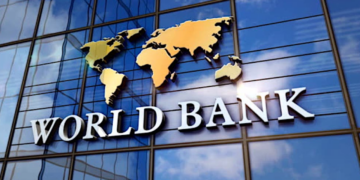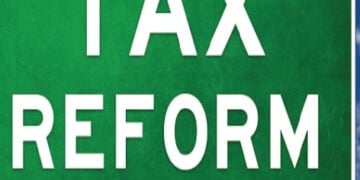The recent increase in the Central Bank of Nigeria (CBN)’s interest rates to 27.75 per cent has sparked concerns within the real estate sector, with industry professionals cautioning that the move could significantly drive up construction and maintenance costs across the country.
Experts in the field have noted that banks may now lend at rates approaching 40 per cent, a situation that would effectively cut off developers from accessing essential credit.
This, they warn, could severely limit housing supply while prompting property owners to raise both prices and rents.
“Real estate developers are investors. Any change in the price of building materials or cost of funds will push them to mark up their prices or rents to recoup their investments and achieve profits,” said chief executive officer of UPDC Plc Odunayo Ojo.
Ojo went on to suggest that with the new interest rate, house prices could rise more quickly than rents, as rental adjustments typically occur on an annual basis. “Increases are implemented on the anniversary of rents,” he explained.
Olubisi Shaola, a property lawyer and developer based in Lagos, shared similar concerns, warning that the current interest rate discourages developers from taking out bank loans, given the unsustainable costs involved.
“When developers can’t secure funds to build, housing deficits will increase as supply diminishes while demand rises,” he said.
The potential consequence of rising demand without a corresponding increase in supply is the likelihood of higher prices.
Rents for one-bedroom apartments in areas like Surulere are expected to increase from N500,000 to between N850,000 and N1 million.
This could compel tenants to move to more affordable, but distant, locations, leading to longer commutes and lower productivity.
The rising costs are also expected to result in more frequent rent defaults and delays in construction projects.
According to chairman of Estate Links Limited, Gbenga Olaniyan, the CBN’s rate hike, while aimed at stabilising the naira and curbing inflation, may ultimately worsen the situation.
As construction costs climb, projects are being renegotiated, with some seeing their costs double within a short timeframe.
Olaniyan noted that rent defaults will likely become more common in the mid-income market, although the high-end sector may absorb the increased costs without significant difficulty.
Festus Adebayo, Executive Director of the Housing Development Advocacy Network (HDAN), also expressed concern, saying, “The mortgage sector is already severely impacted, and developers are finding it nearly impossible to access funding for housing projects.
This is not business as usual, and we are urging the Central Bank to create a special intervention window for the housing sector to prevent further tightening of an already struggling industry.
Without this, the housing deficit will worsen, and the sector may face even deeper challenges.”
The CBN’s decision to raise rates was announced by Governor Olayemi Cardoso following a two-day Monetary Policy Committee (MPC) meeting on 24 September 2024.
The move is part of an effort to tackle inflation and attract foreign investment.
However, many Nigerians are concerned that it could further aggravate existing economic problems, driving food and commodity prices to unsustainable levels.





